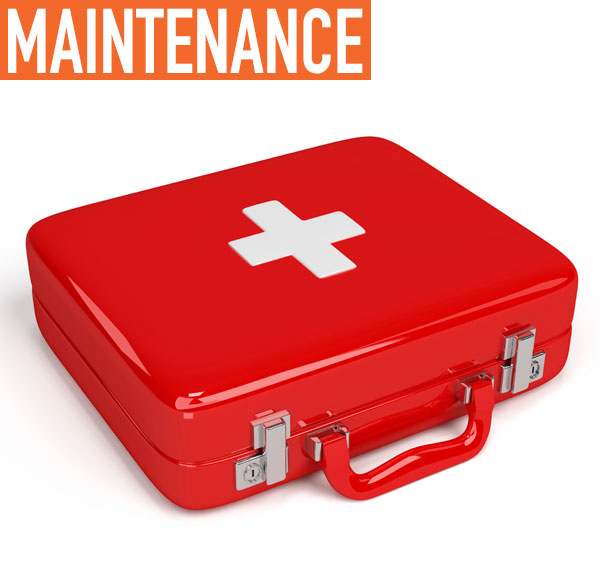I’m sure your drivers are pretty well trained as drivers. They spend most of their work life in or around one of your company’s greatest assets: your trucks. Most training dollars are spent on making sure they operate the vehicle safely and economically. In fact, as you are no doubt aware, drivers are the biggest variable in the operating costs (such as fuel, tire consumption) of a fleet. Their driving style also impacts maintenance costs (brakes, clutches) and ownership costs (vehicle life, insurance costs). That puts the driver or operator front and center of an efficiently run fleet.
PRE-TIP
The driver is potentially the first line of defense as a full fledged member of the maintenance department, too. The pre-trip inspection—as it was conceived—was an operational inspection with all the hallmarks of basic preventive maintenance (PM). In fact, with some training and support, the pre-trip could be a full PM inspection. If you add in topping off the oil, brake fluid, and antifreeze, the pre-trip looks more and more like a maintenance activity.
In the test for a CDL in California, for example, all areas of the truck are covered. In fact, the candidate must pass the pre-trip inspection before even taking the written or road tests. These areas include the front of the truck (lights, etc.), front wheels, front brakes, front suspension, driver/fuel area, under vehicle, coupling system, rear of vehicle (lights, etc.), rear wheels, rear brakes, rear suspension, engine compartment, gauges, cranking, air brakes, steering play, and a few other areas. This inspection—while quick—might mean the difference between a truck on the side of the road waiting for help and an unhappy customer and a happy customer with on-time, safe, delivered product. Not to mention, the safety aspects and the potential reduction of serious safety exposures.

THE THREE Ps
Your PM system is three Ps: prevent failure, postpone failure, and predict failure. Small tweaks in the already mandated inspection can improve your identification of deterioration. How much effort is put into training the driver to see like a master mechanic? Remember, the better the inspector the longer lead time you have to fix a problem before failure. A good inspector will see and report potential problems before they ever become problems—when they are cheap and easy to fix.
Imagine a serious effort to transfer some of the knowledge of the master mechanic to the driver, with the idea that the pre-trip inspection is fully PM and is managed by the Computerized Maintenance Management System (CMMS). The driver is trained to detect impending failure, even if the symptoms are subtle.
TURNING DRIVERS INTO MECHANICS
Imagine, now, an ongoing class from all the fleet experts designed to upgrade the driver’s inspection skills. The driver would be able to tell the condition of the tires almost as well as the tire specialist, leading to fewer road calls for tires. Using photos, videos, and descriptions, the knowledge is continually passed on. Once someone is trained, the actual inspection will not take any longer than the pre-trip inspection.
In the industry, the involvement of operators in this kind of activity has been growing. The formal name is Total Productive Maintenance (TPM). In its limited maintenance role, the operators take over basic maintenance. In the field, basic maintenance is known as Tighten, Lubricate, and Clean (TLC). It turns out that in a factory, 75 percent of all breakdowns are related to problems in one of the TLC areas.
The maintenance role is only one of the roles taken over by TPM operators. The factories that adopt TPM have also adopted another role where the operator becomes the advocate for unit health and is vigilant against misuse. They don’t abuse their vehicle and will not allow anyone else (including maintenance) to abuse their vehicle either.
The operator is the key to a new world in fleet maintenance management. ![]()
ABOUT THE AUTHOR:
Joel Levitt is a trainer and consultant with more than 25 years of experience over a wide range of clients. Find out more about Joel at www.maintenancetraining.com or contact him via email at jdl@maintrainer.com.
_______________________________________________________________________
MODERN WORKTRUCK SOLUTIONS: DECEMBER 2015 ISSUE
Did you enjoy this article?
Subscribe to the FREE Digital Edition of Modern WorkTruck Solutions magazine.
![]()




